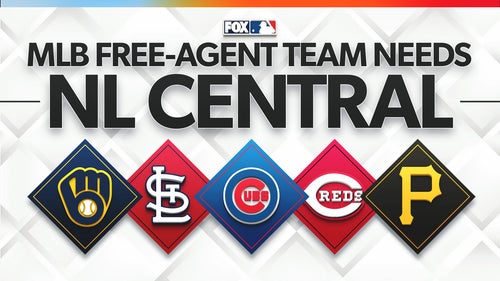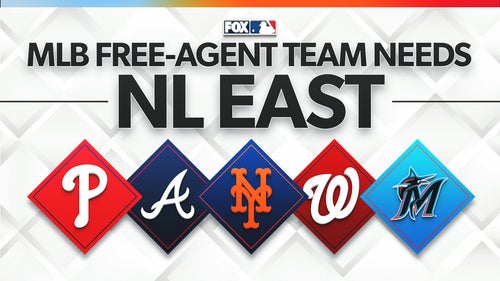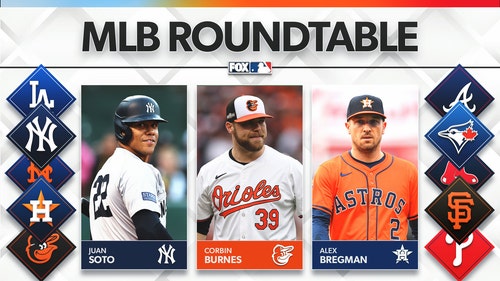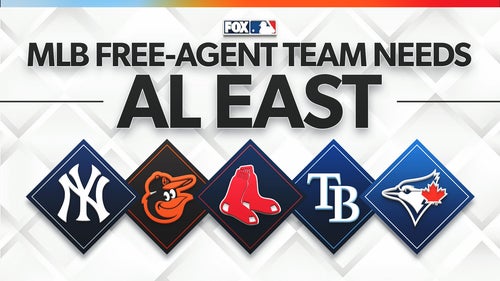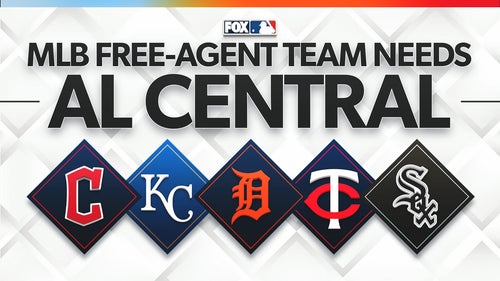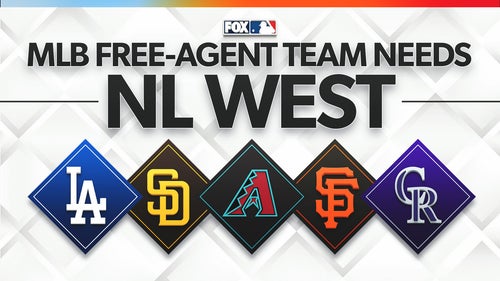
Sports science making athletes happier, healthier and stronger
By Martin Rogers
FOX Sports Columnist
Here is a late contender for the most obvious statement of the week: American professional sports are ridiculously competitive.
The margins at the top are tiny, the slightest of edges can separate triumph or heartbreak, and tactical blueprints are protected with a level of sophistication that would make a military commander proud. No news there.
Yet there is one element of the athletic sphere that manages to break down some of the traditional rivalries surrounding teams and organizations throughout the most popular leagues in the country.
Science.
The means and methods for optimizing sporting performance form a field that continues to experience rapid growth, yet one where information-sharing and positive collaboration are just part of doing business — in a way that might surprise some fans.
The thinking is this, and it’s refreshing: In an area of sports that is so fast-moving and innovative, being overly protective about what you know carries with it the inherent danger of missing out on what others have figured out.
"The best thing you can do to grow within is to look outside," Atlanta Braves head performance coach Brad Scott told me. "If you want your athletes to be the best in the world, then are you going to be the best in the world, as a coach, to support them? I think curiosity is the biggest thing that keeps me going. Talking to others opens up your ideas into how you can adapt them to your own circumstances."
Scott maintains contact with Andrew Hauser, head of performance rehab for the Los Angeles Dodgers. Another key part of their network is Art Horne, director of performance for the Boston Celtics. The Dodgers beat the Braves in a thrilling, seven-game NLCS last season. Los Angeles and Boston have historic sporting angst.
Yet the trio — and numerous others in a group that includes college sports trainers, esports performance coaches and even business and military fitness experts — act as a sounding board for one another in a way that makes perfect sense at its core.
They talk about everything from recommending new products to throwing around ideas on the design of training and rehab areas to the positioning of meal stations for maximum efficiency to sleep recovery — anything, indeed, from the monumental list of responsibilities performance specialists need to think about, especially in these times when much of their work is influenced by rigorous COVID-19 protocols.
Recently, the strength of the sporting think tank provided an unexpected opportunity for Hannah Grant, a sports nutrition pioneer in her own right. Grant, a chef from Denmark with Michelin-star pedigree, revolutionized food science on cycling’s Tour de France over the past decade.

Hannah Grant, a chef from Denmark with Michelin-star pedigree, revolutionized food science on cycling’s Tour de France over the past decade. PHOTO CREDIT: Soren Gammelmark photography
Grant was unafraid to tear up the old habits of pro riders. "They’d be eating things like a plate of pasta with ketchup," she told me. Instead, she sourced local products and prioritized nutritional balance, adhering to the theory of if she could get the racers to enjoy what they were consuming, they’d refuel far more effectively.
Her success spawned a cookbook titled "Eat. Race. Win." and an Emmy-winning Amazon Prime documentary of the same name. But when Grant paired with renowned scientist Dr. Stacy Sims to launch ERW ACTIVE, a range of high-performance hydration products, she was prepared for a tough challenge in terms of gaining the attention of leading American franchises.
"American sports teams have their ways of doing things, and we thought it would be hard to get them to notice us at first," Grant said.
Then she received a message from Hauser, who had binge-watched Grant's documentary series and was fascinated by the process behind her menus. That led to Grant and Sims being introduced to Scott, then Horne, and before long they were part of the network, with an enviable new list of contacts at some of sports’ biggest organizations.
Flushed with confidence from the positive reception of those experts in the sports field, ERW ACTIVE is now undertaking a full U.S. launch less than a year after suffering a temporary setback when its sister product, My Flight Pack (a jet lag cure), was affected by the COVID-induced travel slowdown.
"Once the performance guys understood that everything we did was based on the best science and the highest quality of ingredients, it felt like they trusted us, and we got introduced to more and more of them," Grant said. "It is actually just really cool how these guys care so much about their athletes that they are always looking for ways to benefit them and keeping each other in the loop if they have found something that helps."
That’s what Hauser describes as the "golden thread": the idea that the right information should flow freely and that being prepared to give useful feedback to others will lead to a reciprocal effect of even greater benefit.
"What we all want is pretty simple," Hauser said. "It is to make our athletes happier, healthier and able to perform at their best."
Horne, who navigated the challenges of last season’s Orlando bubble with the Celtics and is now in the midst of the condensed 2021 NBA season, most enjoys the part where the specialists "audit" one another’s methods.
"It actually saves a lot of time and money," Horne said. "Before COVID, I would invite someone like Andrew into the facility, and he would come up with all kinds of questions. ‘Why are you doing this and not this? Why have you positioned this here?’ That whole process makes me think, and you come across little ways to improve, just something that works better and gives a better experience for our athletes."
Nowadays, much of the discussion takes place via text and telephone, though all of the performance specialists expressed hope that soon breakfast chats, morning coffees and trips to the training facility can again be commonplace.
To be clear, not every performance department takes the same approach, and in some organizations, the kind of secrecy that applies to the playbook extends to other departments.
Scott admits to being puzzled with how some teams are still so secretive. "There is so much to be learned from each other," he said.
That mindset is also a turn-off for Hauser, who considers such thinking to be manifestly counterproductive. "By the time somebody figured something out," he said, "you should be years ahead at that point anyway."
Martin Rogers is a columnist for FOX Sports and the author of the FOX Sports Insider newsletter. You can subscribe to the daily newsletter here.

